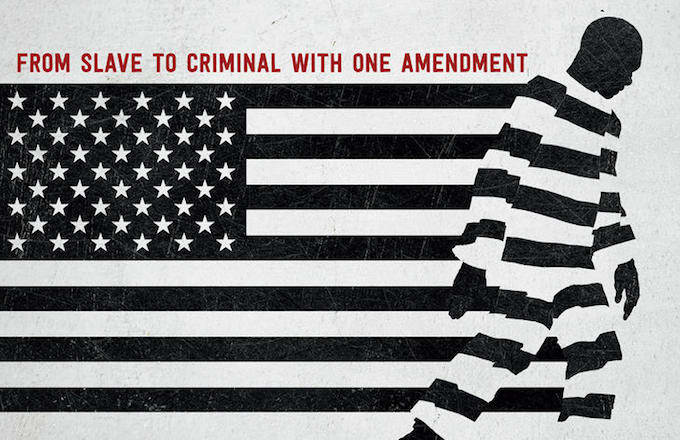Kevin Gannon discusses Oscar-nominated “13th” Documentary
By Kaley Michael, Staff Writer
Professor Kevin Gannon from Grandview University visited on Wednesday, October 24 to present the Oscar-nominated documentary, 13th, and lecture on “Race and Rights in the U.S.: Terms and Conditions Apply?” The Professor of History and Director of the Center of Excellence in Teaching and Learning manages many responsibilities alongside his classes, as three-quarters of his job surround faculty learning developments, pedagogy, scholarship, and at-risk student mentoring with a fellow professor. His interests have always surrounded the gap between the ideas and reality of history and the ways people have tried to challenge the gap, specifically between abolitionists or radical and reformist groups.
His involvement with 13th began through Twitter after he wrote a thread about the constitution and slavery. Gannon’s friend wrote a piece in Junto about the rant, which then included the Professor’s opinion on links between the constitution and slavery, and how the constitution makes allowances for slavery. Following this, he received a Twitter message from Ava DuVernay’s assistant, who asked if Gannon would be interested in an interview. He then was flown to New York for a ninety-minute talk – or “interview” – which is what is shown in the documentary. Gannon said in an interview prior to his presentation that DuVernay was such a good interviewer that it was easy to forget that there were cameras recording his comments; it was a conversation between the two.
13th focuses on the loophole clause of the thirteenth amendment that ended a certain system of slavery. The amendment abolished slavery and involuntary servitude, except as a punishment for a crime, thus making it legal for mass incarceration to permeate the United States. Mass incarceration targets low-level drug offenders and misdemeanor charges, whose lives are ruined by the corrupt justice system. In place of bestowing justice, the legal system prevents rehabilitation and reparation. According to Gannon, “When conservatives talk about law and order and war on crime – those are racial appeals conditioned by our history. Black lives matter is starting to bring awareness to this conditioning.”
In the documentary, the Professor said, “There has never been a period in our history where the law and order branch of the state has not operated against the freedoms, the liberties, the options, the choices, that have been available for the black community, generally speaking.” To fix this issue, rethinking policing would be a gateway solution. The way the institution of police has evolved is allowing the system to come out of the need to control minorities and antebellum, as well as the way police forces have been weaponized. Video clips were shown in the film that depict multiple tragedies that have happened because of the racism that police officers have.
Following the film’s success, Gannon gained a bigger platform for his work. Many people found him online, including student groups, campuses, college instructors, and others who wanted him to speak at their colleges or events. During the past five years, he has presented at a large number of schools with the intention of encouraging students to think with different perspectives and think more sharply. Having clearer vision enables a more honest look. He has not been greatly affected by the backlash from his documentary comments, but he has gotten hate mail, twitter backlash, and his university president has gotten hate mail. His beliefs in higher education enable him to ignore hateful criticism for the greater good of teaching others about social/racial issues. In his own classroom, he uses engaging activities that coerce his students to interact with one another to discuss race and do group analyses.
Fighting for African Americans rights is not enough. Reparations can help racism by creating a truth and reconciliation commission like Africa did after apartheid. As a society, we need to recover from national traumas, as this is a racist society. Issues of race have become partisan issues, as racial appeals are encoded in the Republican platform, and disentangling them will be very difficult. When the Republican political institution is involved in bans, such as the Muslim ban, the party becomes inherently racist. Blaming African Americans for being aware of racial issues is like accusing a drowning man of making everything about war. Also, we need to be more inclusive in regard to opinions from non-white citizens.
Professor Gannon argues that everyone has implicit bias. The David Foster Wallace story about fish in water engenders awareness about being aware of biases and how they can use them to be advantageous. If we realize our privilege and recognize that we have the ability of white people to aid minorities and fight the fight with them, then change – radical change – can take place in our country. However, it is essential that we recognize that we do not understand their struggles fully. We do not know what it is like to live as targets, thus we can only help them without trying to infringe on their needs.

